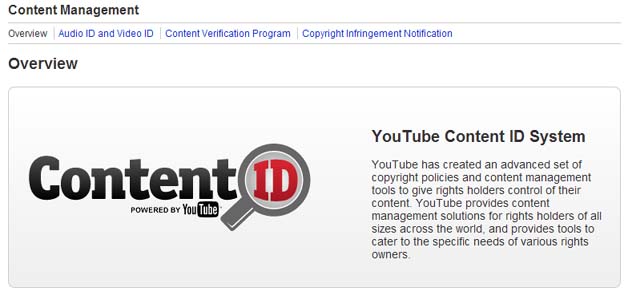
In a Dec. 12th 2011 post for The Guardian Cory Doctorow suggests that the real villains of YouTube are the multinational companies cashing in on public domain footage they claim is their own.
According to Cory Doctorow, there is a "titanic problem with [YouTube's] ContentID [system that] has received little attention: the use of ContentID by those who falsely or incorrectly assert ownership over public domain works – works that have no copyright at all – and then either block access to the videos, or collect the advertising revenue from these videos."
To understand how some big media companies might be taking content that you own and claiming it as their own, you first need to understand YouTube's Content ID system and the public domain.
Content ID
To protect rights-owners who feel their work has been "pirated," YouTube has instituted a service they call Content ID. How does Content ID work? Rights holders who are concerned about "piracy" must first deliver reference files (audio or video) to YouTube. YouTube then automatically compares all newly uploaded files against the reference files. If the new content matches a reference file, YouTube gives the underlying work's content owner 3 choices: monetize, track, or block.
Note: Reference files are supposed to be only for content that the content owner legitimately owns. If a big media company delivers a reference file for content that they don't own (for example, for work that the general public owns because it is in the public domain) - and then tries to monetize or block the new content - that is a form of theft from the general public.
Public Domain
Public domain literally means owned by the public. Anyone is free to use public domain works however they wish, without seeking permission, because:
their copyrights have expired (e.g., anything published prior to 1923 in the US); or
the copyright owner didn’t follow certain required formalities (e.g., failed to register under the previous US copyright law); or
the works weren’t eligible for copyright in the first place (e.g., facts, created by a government employee as part of their job, etc.); or
their creators dedicated them to the public domain.
In his Dec. 12th 2011 post for The Guardian, Cory Doctorow writes about how some big media companies have been taking illegal advantage of the FedFlix program. Since 2007, FedFlix has been posting government-produced video (which by definition is in the public domain) to YouTube. But some big media companies have sent reference files to YouTube claiming that they own these public domain works. In particular, Cory Doctorow identifies three media companies - NBC Universal, al-Jazeera, and Discovery Communications - that he claims have abused YouTube's ContentID system, by claiming title to public domain FedFlix videos that are on YouTube.
No comments:
Post a Comment